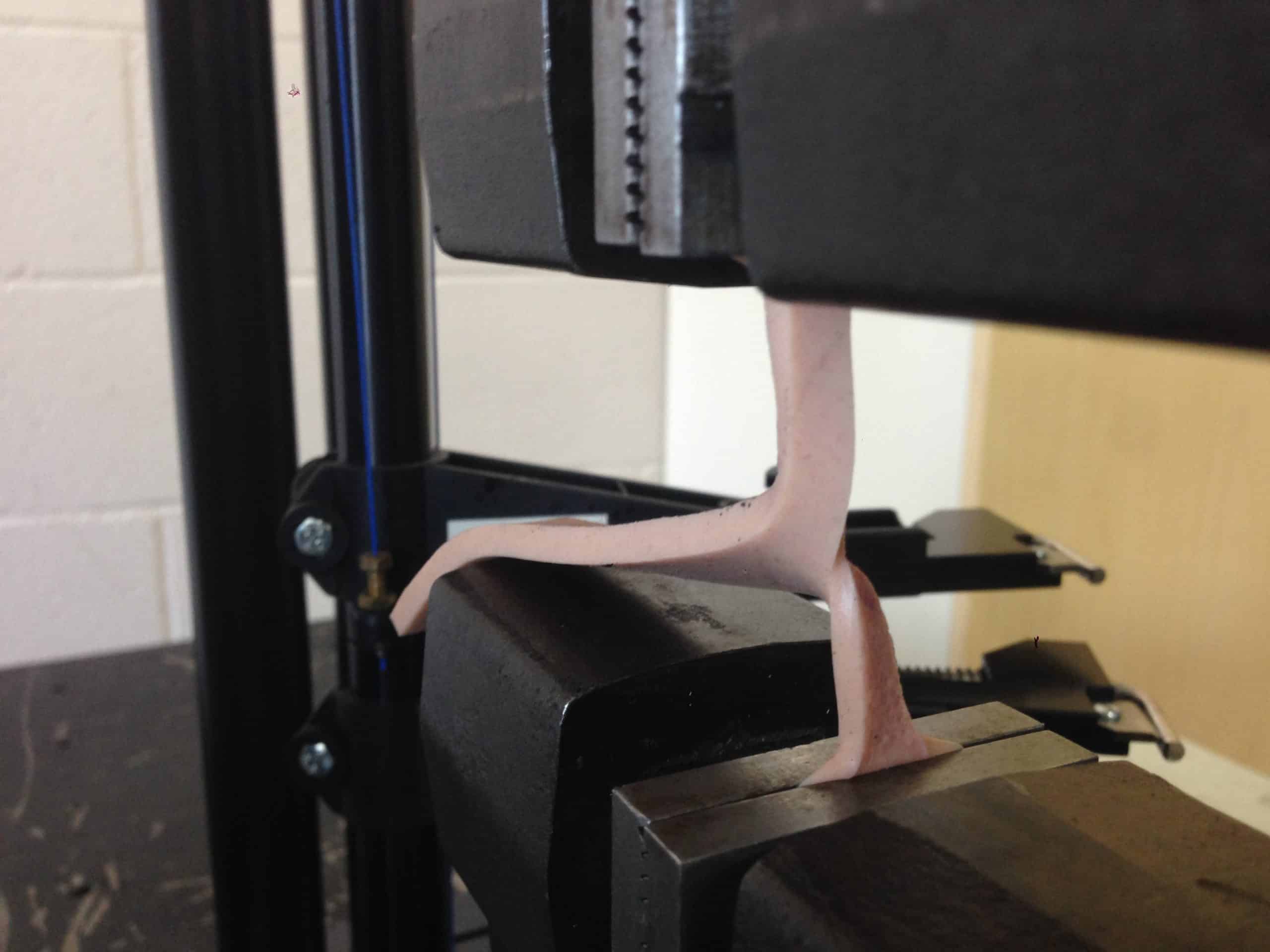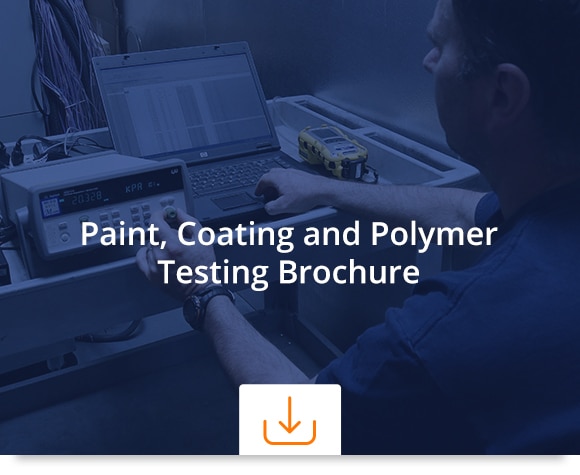Polymer Testing
Polymer testing is the process of evaluating the mechanical, thermal and chemical properties of polymers, which are large molecules made up of repeating structural units. These tests are used to determine the suitability of a polymer for a particular application and to ensure that it meets industry standards for quality and performance.
As an ISO 17025 accredited laboratory, Micom is pleased to offer complete polymer testing services including mechanical, accelerated aging and surface properties testing to product and parts manufacturers.
About Testing Polymers
Polymers are a diverse group of materials that include plastics, rubbers, and adhesives, among others. Testing these materials helps to ensure that they meet the desired specifications and perform as expected in their intended application. Testing ensures that polymers are up to standards for use in various situations.
Mechanical Testing
One common type of polymer testing is mechanical testing, which measures the material’s strength, toughness, and deformation characteristics. This can include tests such as tensile testing, compression testing, and impact testing. These tests can help determine the polymer’s suitability for use in high-stress applications, such as automotive parts or construction materials.
Thermal Testing
Another important type of polymer testing is thermal testing, which measures the material’s behavior at different temperatures. This can include tests such as thermal stability, thermal conductivity, and thermal expansion. These tests can help determine the polymer’s suitability for use in high-temperature applications, such as electrical insulation or aerospace components.
Chemical Testing
Polymer testing can also include chemical testing, which measures the material’s resistance to chemicals and solvents. This can include tests such as acid resistance, alkali resistance, and solvent resistance. These tests can help determine the polymer’s suitability for use in chemical processing or storage applications.
Overall, polymer testing is an essential step in ensuring that a polymer meets the necessary properties and standards for use in various industries. The result of the testing can help to determine the most appropriate polymer for a particular application and can also help to identify any potential issues or areas for improvement.
Why Is Polymer Testing Important?
Polymer testing is important for several reasons:
- Quality control: Meeting standards of quality. For example, a manufacturer may use testing to ensure that a polymer product has the correct physical properties such as strength, flexibility, or resistance to wear.
- Safety: Ensuring the products are safe for their intended use and don’t present any health risks to humans or the environment.
- Performance: To measure the stability, UV resistance, and chemical resistance of the materials.
- Durability: Testing determines the longevity of the products, which has a big influence on the life cycle of the item, thereby impacting costs and client satisfaction.
- Compliance: To ensure that products meet the regulations and standards.
How Can Micom Help You?
Micom provides a wide range of polymer testing services. Our laboratory is accredited with ISO 17025. The tests offered are for a variety of industries from Aerospace, Pharmaceutical (such as polymeric nanoparticles, micelles, hydrogels, etc.), Medical (like implants, prosthetic, and drug delivery systems), Packaging (bags, bottles, and containers), Juvenile products, and much more.
Our polymer testing engineers can provide you with a list of appropriate tests to verify that your product meets your specifications.
The polymer testing services offered by our laboratory help you:
- Meet all relevant national and international standards.
- Ensure that your polymer materials meet safety, environmental and aging requirements.
Request a free consultation
Our Proposed Polymer Tests
Micom is pleased to offer a wide variety of polymer tests to manufacturers. Below you will find an overview of the types of tests we provide for plastics, rubber, adhesives, and composite material testing.
| Flatwise Tensile Strength – ASTM C297 |
Impact – ASTM D1709, ASTM D2794 |
| Coating Flexibility – ASTM D522 |
Plastics Mechanical Prop. ASTM D2990 |
| Tensile Strength – ASTM D638 |
Peeling Strength – ASTM D1781 |
| Comp. Str. Rigid Plastics – ASTM D695 |
Coating Adhesion Tape – ASTM D3359 |
| Flexural Strength ASTM D790, ASTM D3043 |
Foam – ASTM D3574 |
| Specific Gravity – ASTM D792 |
Taber Abrasion – ASTM D4060 |
| Particle Board Testing – ASTM D1037 |
Composite Materials ASTM D4762 |
| Rigid Cellular Plastics – ASTM D1623 |
Wood-Bonding Adhesives – ASTM D5574 |
It is important to note that the test choice will depend on the polymer type, use and specific requirements. Test results should be compared with the standard test methods or the specific specification to have meaningful data. Some products like adhesives require specific types of testing; allow us to help you find the correct type of test for your product!
If you want to see an actual demonstration of our Lab’s capabilities, then check out this video about ASTM D1781 Climbing Drum Peel Test for Adhesive Bonds. This test helps measure the peel resistance of adhesive bonds between a relatively flexible adherend and a rigid adherend.
Rely on Our Laboratory for All Your Polymer Tests
You can rely on Micom’s experienced team to guide you in selecting the right polymer tests for your application. Contact us today to find out how our polymer testing services can ensure the quality, durability and safety of your product.
For additional information on various paint, coating and polymer testing services, please visit the following pages: Material Testing, Accelerated Aging, Coating Testing, ASTM Testing.
We also invite you to download our brochure for further details about our range of Paint, Coating and Polymer testing services.



